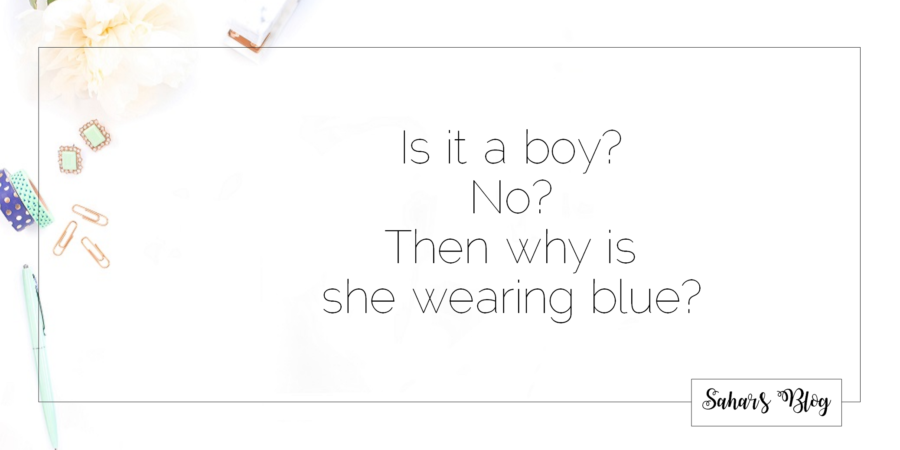Even before we knew if our child was going to be a girl, her father and I started shopping for clothes. On the one hand, we were looking for any excuse to get our hands on the ridiculously adorable miniature versions of what we wear that grace the stores (I mean have you seen the selection that Carter’s Oshkosh offers?) On the other hand, we knew that a large part of our child’s wardrobe would be gender-neutral. After all, it’s not as it there is a big difference between boys’ and girls’ proportions at that age!
But it seems that what we consider neutral is gender specific in the eyes of many after all. When our daughter wears grey, black, orange, or green, we are inevitably asked if she is a boy and, when told that she is a girl, we are met with confused looks. Out for curiosity, I asked a friend of mine to dress her baby boy, who is around the same age as my daughter, in yellows, creams, and lavender; she was asked if he was a girl and, yes, met with a lot of similarly confused looks.
Are my friends and I, who shop on both sides of the stores to fill our children’s closets, being avant-garde by throwing away some if the superficial societal expectations placed on their wardrobe? Or are we breaking a necessary social rule by which young babies, who for the most part do not look like they are of a specific gender, are dressed in pink and blue to eliminate such awkwardness? Or is it time for a maturing society to grow out if this rule by accepting that clothing does not define gender, but rather, that genetics do?
A Balancing Act
I personally think it is a balance between the two, as we are in a period of transition between the old ways and the new ones. It used to be necessary to have certain patterns that governed our interactions, including clothing that clearly identified us and, of course, defined us. But now that our understanding of what it means to be a man or a woman evolves, what we do naturally evolves as well.
So to those of us who are dressing our children according to the dictates of beauty and esthetics rather than limiting ourselves to only the colours assigned to our child’s gender: keep at it. But remember to be patient and loving towards those who question our choices; of course they are confused, they never thought about things the same way. And we must be very careful to never, ever judge those parents who stick to social conventions. Because who knows; we might be completely wrong after all.
Are you concerned about societal norms when you dress your child? Or do you just enjoy how ridiculously adorable baby clothes are?





